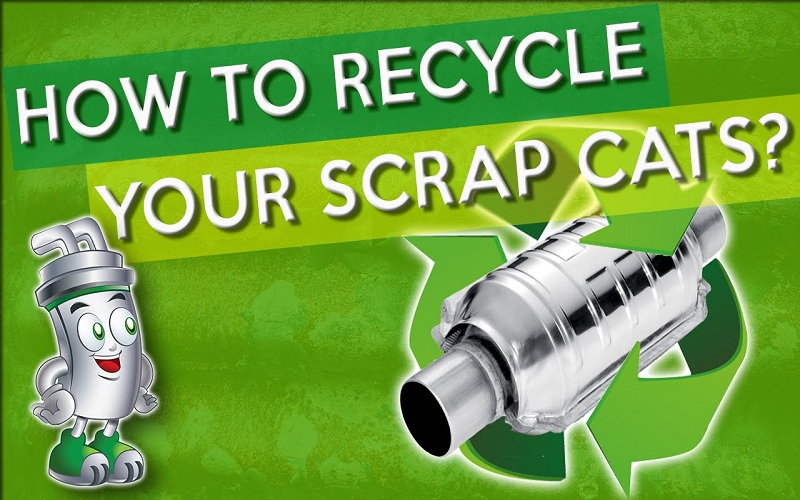Reusing old converters to recover valuable metals for use in new goods is known as catalyst recycling, and it’s a profitable and eco-friendly process. It might be intimidating for newcomers to the recycling sector to navigate the procedure. However, you may recycle catalytic converters and increase your profits if you have the correct information and techniques. In this post, we’ll cover some helpful hints and strategies for those who are just starting to recycle catalytic converters.
1. Get to Know Catalytic Converters
It’s important to comprehend the fundamentals of catalytic converter operation and contents before getting started with recycling. Precious metals like rhodium, palladium, and platinum are found in catalytic converters, which function as catalysts to change toxic emissions into less toxic ones. Learn about the many kinds of converters, how they are made, and what metals they include.
2. Learn about Local Laws
Understanding the laws that apply to the recycling of catalytic converters in your community is essential. There can be regional regulations pertaining to how these devices are handled, transported, and recycled. Before beginning your recycling business, be sure you are in compliance with all local regulations and have obtained all required permissions or licences.
3. Build Connections with Vendors
Establishing trusting connections with vendors that supply used catalytic converters is essential for a recycling company to succeed. To form alliances, contact local recycling facilities, vehicle repair companies, and scrapyards. Provide reasonable pricing and dependable service to draw suppliers and guarantee a consistent supply of converters for recycling.
4. Make a Quality Equipment Investment
Purchasing high-quality equipment is necessary to recycle catalytic converters effectively. Decanting machines, crushers, and chemical processing equipment are examples of tools that help optimise metal recovery and speed up the recycling process. Even while the upfront costs might be high, they will eventually pay off in terms of increased productivity and profitability.
5. Learn About Metal Prices
The value of catalytic converter scrap is directly impacted by the pricing of precious metals such as rhodium, palladium, and platinum; therefore, keep up with their values. Monitor market trends and metal price swings to help you decide whether to sell, buy, or keep your scrap materials. Websites, discussion boards, and trade journals are excellent resources for information about metal price movements.
6. Make Use of Testing Procedures
Before buying or processing catalytic converters, correctly determine their metal composition using testing techniques. Methods like chemical tests and X-ray fluorescence (XRF) analysis can ascertain the composition and worth of waste materials. By investing in testing machinery or forming a partnership with a testing facility, you can ensure reasonable rates for your junk converters.
7. Create Effective Processing Techniques
Creating effective processing techniques is essential to getting the most out of catalytic converter recycling. Simplify your processes to cut down on waste, speed up processing, and maximise metal recovery rates. Try out several approaches and procedures to see which ones work best for your recycling company in terms of both cost and effectiveness.
8. Remain Updated with Market Trends
To maintain your competitive edge in the market, remain up to date on catalytic converter recycling advancements and industry trends. To find out about the newest innovations, rules, and best practices in the recycling sector, attend conferences, trade exhibitions, and networking gatherings. Professional networking can also yield insightful information and cooperative chances.
Conclusion
For those new to the recycling business, recycling catalytic converters may be a lucrative and satisfying endeavour. Beginners can position themselves for success in the recycling business by learning about catalytic converters, comprehending local regulations, building relationships with suppliers, investing in high-quality equipment, keeping up with metal prices, employing testing techniques, creating effective processing methods, and keeping up with industry trends. Recycling catalytic converters may be a profitable and long-lasting business opportunity with the right commitment, understanding, and persistence.

